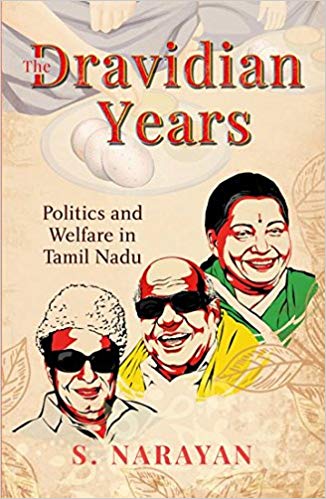Tamil Nadu is seen as a model state that combined growth and development with inclusiveness. The State’s policy initiatives were critiqued by the Right for the populist schemes and neglect of fiscal prudence and by the Left for prioritization of populism over structural changes like land reforms. Such critiques notwithstanding, the State has done better in basic development indicators, an outcome of an efficient and inclusive delivery of social sector schemes; the nutritious noon-meal scheme, the enlargement of the Public Distribution System (PDS) and initiatives in public health. However, a State perceived to be corrupt doing extremely well continued to puzzle many as hitherto there had been no comprehensive work offering explanations to this conundrum.
The book under review, The Dravidian Years: Politics and Welfare in Tamil Nadu by S Narayan attempts to unravel the conundrum. Narayan, who had an insider’s view, was an IAS officer of the 1965 cadre and worked with the State administration till he left for Delhi in 1997. He has closely followed the policy and political processes. As he himself says, the book is a product of the ‘…personal view of the social transformation of the state of Tamil Nadu, from the point of view of one who has lived through it’ (p. xxii).
The book is divided into nine chapters. After a brief introduction, the first chapter foregrounds the history of the Dravidian moment led by Periyar EV Ramasamy that laid the ideological foundation for the Dravida Munnetra Kazhagam (DMK). The author attributes the ideological foundation to the Self Respect Movement (SRM), which, in his opinion, has worked as the guiding principle for policy initiatives for the Dravidian parties—the DMK and its offshoot, the All India Anna Dravida Munnetra Kazhagam (AIADMK).

